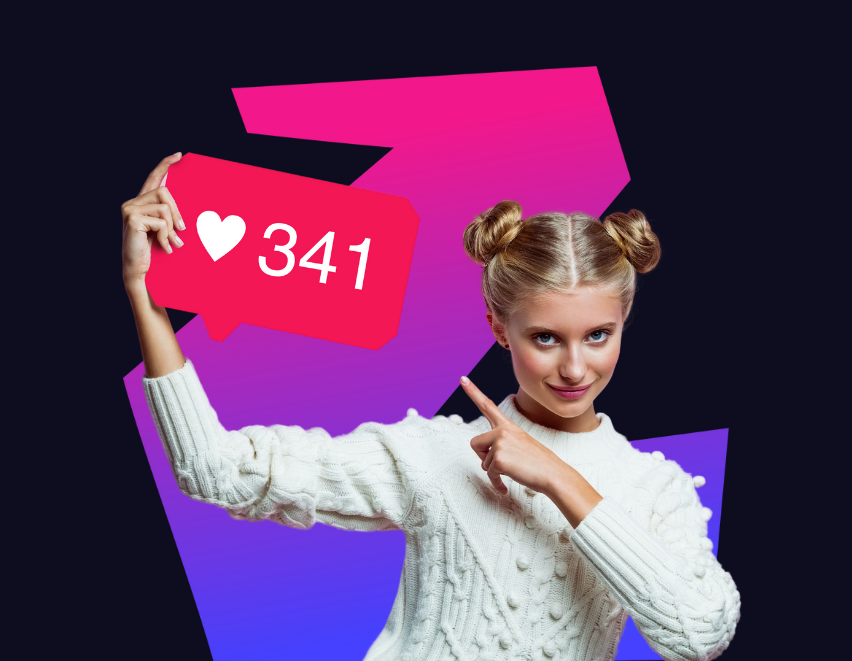Have you seen the latest TikTok de-influencer trend?
This is basically where social media influencers slander a hyped up viral product and tells you exactly why you DON’T need it.
Is this going to be the death of influencing or another clever ploy to encourage you to buy a product. The double bluff?
When did influencing begin?
Influencing has been around since the dawn of time, I’m almost certain someone once saw Celopatra in a pair of earrings and thought ‘I MUST HAVE THEM!’ but it really hit its stride in 2009 when content creators such as Zoella and Tanya Burr Began to influence their followers into getting must-have products such as Morphe makeup brushes or an item from a large Primark haul.
So when did De-influencing start?
De-influencing has existed for longer than you realise: a great example (even if it was unintentional) is back in 2021 when Ronaldo moved a Coca-Cola bottle out of shot during a press conference and chose to drink water instead. This resulted in the brand’s market value dropping by $4billion. This highlights how easily influenced we can be, if our idol does or doesn’t want something, then suddenly neither do we.
Some creators such as Remi Bader (Remi Jo on Tiktok) have literally grown their channels purely from de-influencing their followers. Remi began creating content in 2020 and has now grown a huge following of 2.2M on Tiktok alone. As a curve model, Remi creates “Realistic” clothing hauls highlighting the sizing issue that exists in the fashion industry. Remi’s content typically consists of try on hauls from specific brands, in which she is brutally honest about the sizing, comfort and quality of every item she puts on, influencing and de-influencing viewers on which brands to purchase or not to purchase from. Remi’s honest and relatable content has resulted in huge brand deals, gifting and even a brand collaboration with Revolve Clothing.
Does influencing / de-influencing work?
Everyone has an idol, someone they look up and would do pretty much anything to be a little bit more like them. When that idol wears, owns or uses a product it immediately becomes more desirable.
Influencer marketing is a great way to ensure you are reaching your intended target audience. Influencers add authenticity to a brand, they prove to followers that the brand has clout and is worth purchasing from purely because a trusted person (influencer) claims to use it.
Products are often likely to sell out when influencers such as Mikayla Nogueira or Molly Mae are seen wearing, using or even owning them.
Although influencers are seen as trusted individuals, there have been scandals around them not even using a product when they promote it.
Some influencers have even been seen promoting products that are dangerous to their viewers’ health or encouraging people to buy a makeup product that has been tested on animals.
Influencers have a lot of power over their followers and often forget the responsibility that comes along with it. When money is involved it can really blur the lines on whose opinion you can really trust.
What does de-influencing mean for brands?
I would say… not a great deal, it just keeps them on their toes.
Obviously de-influencing could be incredibly dangerous for a brand if they are featured on the negative side of things. But, equally if your product makes it to the ‘I recommend this product instead’ side of the video, then you are winning.
De-influencing is simply just deceptive marketing, another sneaky way to sell a product, yet this way it seems less cliche. ‘Don’t buy this product, buy this one instead’ could be the new marketing strategy for a lot of brands, requesting that influencers recommend their product over another.
What does de-influencing mean for influencers?
Many influencers are absolutely loving the de-influencer trend. Beauty influencers are using it as a way to show off their favourite beauty products, by creating content such as ‘Get ready with me whilst I de-influence you!’.
It is really interesting to see the impact this is having on the beauty industry, how a viral product that has been trending for a while is now getting negative reviews and another major beauty brand product is being hyped up instead.
In a way, content creators who ‘de-influence’ shouldn’t be a big crazy trend, it should be normal. Not liking a product or a product not working for you should just be seen as realistic. Maybe more influencers should share Remi Bader’s attitude to honesty.
If you look at the bigger picture… The idea of de-influencing can be seen as a positive, a way of reducing overconsumption. This could have massive benefits to our planet, as the fashion industry is one of the most damaging industries in the world.
Instead of telling viewers what to buy and what not to buy, should influencers be showing us how to make the most out of what we already have? But this way of influencing is of no benefit to brands, or influencers for that matter, as they would make no money this way.
It is hard to decide what de-influencing really means for the marketing industry, but it is clear to see that it has and will always be around, it just might take on different forms.
